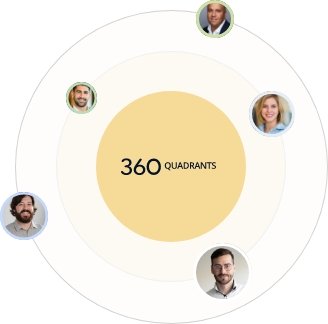Process automation refers to technology-enabled automation for the smooth and efficient functioning of complex processes across a wide range of process industries, such as chemicals, oil & gas, energy & power, and water & wastewater management. Process automation is used to automatically control a process and help plants and factories to operate efficiently and safely through various automation solutions. The measurement and control of process variables such as level, pressure, temperature, and flow in the processes across various process industries are referred to as instrumentation. Due to the adoption of process automation and instrumentation solutions, human intervention is eliminated, and time is saved during the entire production as well as in the controlling stage. "
Visionary leaders are the leading market players in terms of new developments such as product launches, innovative technologies, and adoption of growth strategies. These players have a broad portfolio of products that caters to most regions globally. Visionary leaders primarily focus on acquiring the leading market position through their strong financial capabilities and well-established brand equity.
Dynamic differentiator players are well established with effective business strategies. However, they have weak service portfolio. They generally focus on a specific type of technology related to products.
The process automation and instrumentation market depends moderately on innovators who bring innovation in the form of product and technological development. Innovators demonstrate substantial product innovations as compared with their competitors. They have process automation systems and measuring instruments. However, they have nominal growth strategies for their overall business.
Emerging companies offer niche products and have gradually started gaining their position in the market. They lack effective business strategies as compared with other established players.



